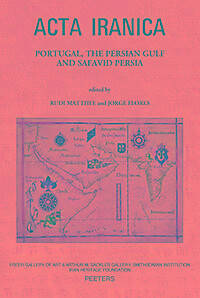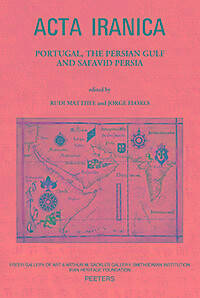
- Afhalen na 1 uur in een winkel met voorraad
- Gratis thuislevering in België vanaf € 30
- Ruim aanbod met 7 miljoen producten
- Afhalen na 1 uur in een winkel met voorraad
- Gratis thuislevering in België vanaf € 30
- Ruim aanbod met 7 miljoen producten
Zoeken
Omschrijving
The Portuguese were the first Europeans to play a major commercial, military and diplomatic role in the Persian Gulf basin. They first appeared before Hormuz in 1507, established a toll house on the island in 1515, and remained active in the wider region for the next two centuries. This book commemorates the quincentennial of their arrival in the Persian Gulf. Its contributors offer an array of fresh research on their activities on Hormuz and beyond, examining these from a variety of angles, with special attention to the wider context involving the adjacent Safavid, Ottoman and Mughal states. The essays presented here explore the commercial and military activities of the Portuguese, their rivalry with the Ottoman state for naval control in the Gulf, and their interaction with Safavid Persia by way of missionary ventures, diplomacy and travel, but also represent new and exciting research on the historiographical record of their presence in the form of cartography and the discourse about Persia it generated in Portugal.
Specificaties
Betrokkenen
- Auteur(s):
- Uitgeverij:
Inhoud
- Aantal bladzijden:
- 312
- Taal:
- Engels
- Reeks:
- Reeksnummer:
- nr. 52
Eigenschappen
- Productcode (EAN):
- 9789042924482
- Verschijningsdatum:
- 23/06/2011
- Uitvoering:
- Hardcover
- Formaat:
- Genaaid
- Afmetingen:
- 168 mm x 246 mm
- Gewicht:
- 657 g

Alleen bij Standaard Boekhandel
+ 170 punten op je klantenkaart van Standaard Boekhandel
Beoordelingen
We publiceren alleen reviews die voldoen aan de voorwaarden voor reviews. Bekijk onze voorwaarden voor reviews.











